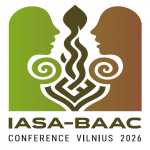6. Personnel
Even though the pioneers of ethnomusicology were skilled physicists, chemists and lawyers, nowadays it is essential to employ academically trained staff to carry out research, recording and archival work. Employing enthusiasts and self-taught people as assistants can often pay dividends, but the programme planners and policy-makers should always be people trained and qualified in ethnomusicology. As indicated in the technical chapter it is extremely important to employ technicians, even in relatively small research units involved with the collection of acoustic material and its preservation for future generations. While in a small unit the technician can sometimes be employed on routine copying work, in a larger operation he will probably require a technical assistant for this. But recording, particularly location recording, should be left to academically trained personnel, if the need to keep to a minimum the external influences exerted on a recorded event is to be achieved in practice, and if technology is always to be made to serve research responsibly and conclusively. Even in producing archival copies it is best to use academic staff and not a technician. Not only is this labour-saving, it can also provide a further opportunity to select and document the material. It is especially important to follow these principles if the archive's technical staff have been recruited from radio organizations; their broadcasting experience might be used to persuade the often impressionable archivist that certain commercial studio practices are 'professional'. The job description for an archive technician, therefore, should always specify a service technician rather than a sound technician or sound engineer.
A professional collector/archivist should be capable of recording, accessioning and cataloguing about fifty hours of ethnomusicological material a year. If he is just accessioning other people's material, rather than recording it himself, he should be able to deal with up to a hundred hours of recordings. The work capacity can be increased, although not necessarily at an even ratio, if routine jobs are delegated to a research assistant. Archivists might find it quite useful to share one such assistant between two of them. Experience has also shown that for every three or four professional archivists, there should be one administrative assistant.
Finally, it should be noted that from a practical point of view it can be very helpful if actual members of the group being studied are used to conduct research. It is particularly worthwhile considering this when selecting staff for research programmes relating to minority groups.


